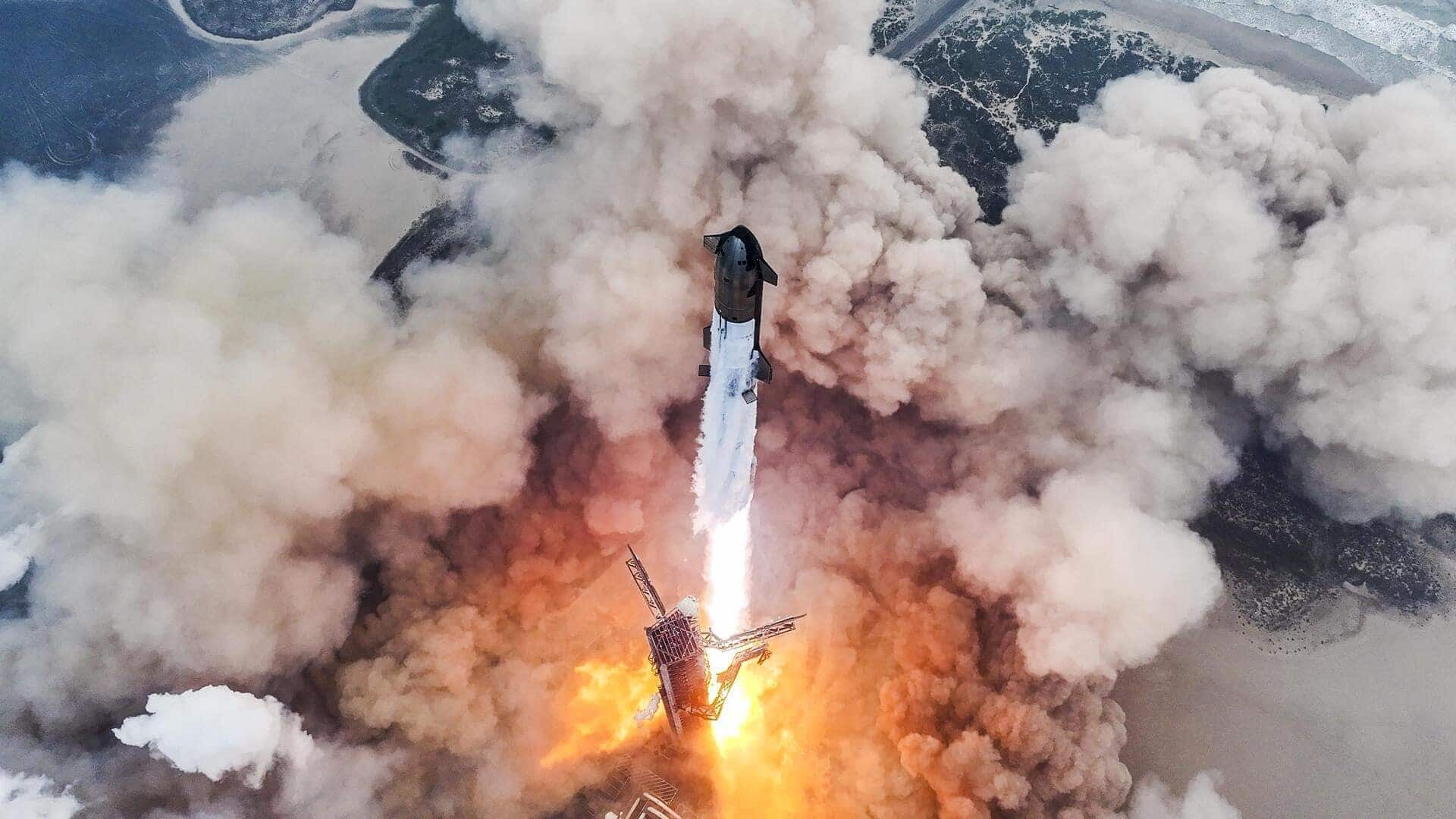
SpaceX's Starship Flight 11 success paves way for upgraded prototype
What's the story
Elon Musk's SpaceX has successfully completed the 11th test flight of its Starship rocket. The launch took place from Texas on Monday and ended with a splashdown in the Indian Ocean. This was the final flight before SpaceX starts testing a new version of the massive rocket, which will be equipped with more features for Moon and Mars missions.
Mission details
What happened during the latest Starship mission
The latest mission saw the Starship upper stage sitting on top of its Super Heavy booster. It lifted off from SpaceX's Starbase facilities at 6:23pm CT. After successfully sending the Starship stage into space, Super Heavy returned for a soft water landing in the Gulf of Mexico seven minutes after liftoff. The flight was similar to its last mission in August, which had ended a streak of testing failures earlier this year.
Mission significance
NASA hails successful mission as step toward Moon landing
The latest flight also deployed a batch of mock Starlink satellites, briefly re-igniting its engines in space and testing new heat shield tiles during its fiery return. Acting NASA Administrator Sean Duffy hailed the mission as "another major step toward landing Americans on the Moon's south pole." SpaceX plans to launch a more advanced Starship prototype with upgrades needed for long-duration space missions in future tests.
Prototype details
Upgraded Starship to have docking adapters, other hardware changes
The upgraded prototype will include docking adapters and other hardware changes crucial for orbital refueling, a complex process where two Starships dock in orbit to transfer hundreds of tons of super-cooled propellant. SpaceX President Gwynne Shotwell had said at a conference in Paris last month that this upgraded version "is really the vehicle that could take humans to the Moon and Mars." She expects it to fly by year's end or early next year.
Future objectives
SpaceX's proposed moonshot plan requires refueling of multiple rockets
Refueling is one of the many remaining testing goals before the rocket can carry humans to the lunar surface in 2027. Under SpaceX's proposed moonshot plan, multiple Starship tankers will be needed to fill up one Starship with enough fuel for a Moon landing. This is part of a more than $3 billion contract SpaceX won in 2021 under NASA's Artemis program, which aims to put humans on the Moon for the first time since 1972.